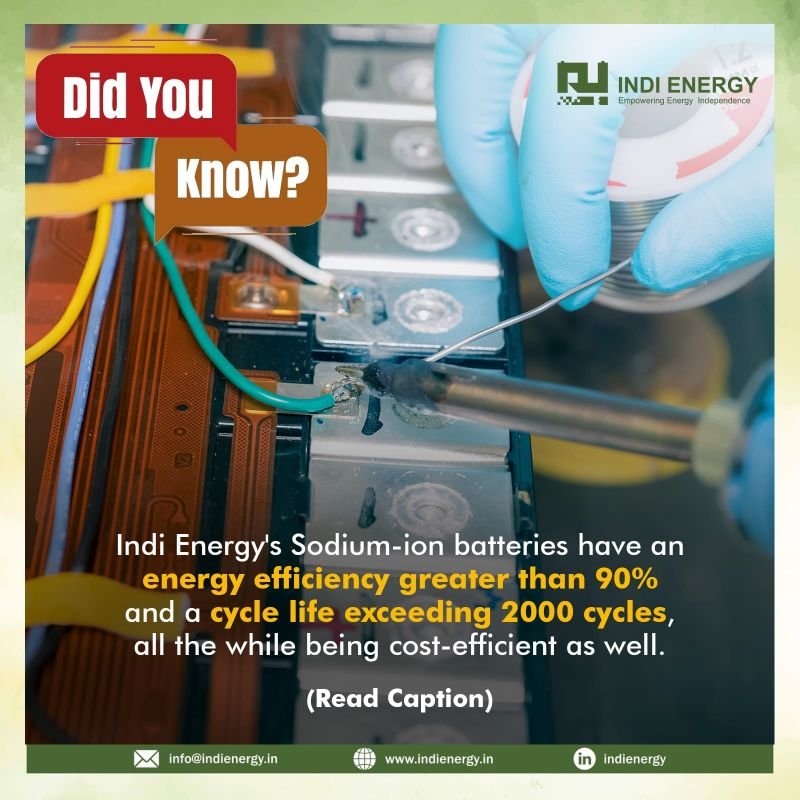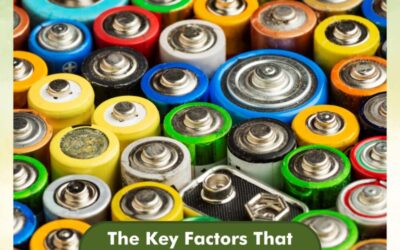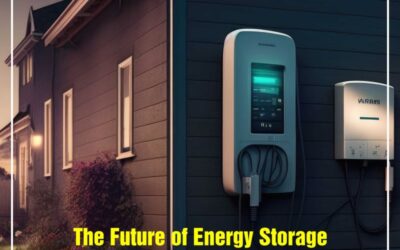
Indi Energy is back with the fifth edition of “Sodium ion Batteries Technology Updates.”
Indi Energy, an indigenous entity from IIT Roorkee, is fast gaining prominence for its innovative sodium ion batteries technology. With the world counting the moments until sodium-ion batteries are available on the market, we at Indi Energy are getting closer to mass production of our sodium ion batteries. In the meantime, we are back with the fifth edition of Sodium-ion Batteries & Indi Energy’s Technology Updates, where we will look at the recent happenings and some general knowledge related to the world of battery technology. Let’s get into it!
Why do batteries corrode?
Battery corrosion normally happens due to electrolyte leakage, high humidity, and chemical reactions, leading to the deterioration of terminals and structural components. It’s pretty straightforward, isn’t it? So now the question is: how can we prevent this in the first place?

Well, first and foremost, regular maintenance practices are a must. Checks, cleaning, and effective sealing help in the detection and prevention of early signs of corrosion. Moreover, ensuring proper storage in dry and cool environments, coupled with the application of protective coatings on terminals, serves as a vital defense against the detrimental effects of moisture and corrosive substances.
If we prioritize the avoidance of extreme temperatures and select batteries with corrosion-resistant materials, we can effectively minimize the risks associated with corrosion, promoting prolonged battery efficiency and functionality. Timely replacement of batteries also plays a crucial role in preventing the escalation of corrosion-related issues and maintaining the overall health and performance of batteries in various applications.
We will tell you an interesting fact. Sodium-based electrolytes are less reactive and corrosive as compared to other battery chemicals, such as those based on lithium or lead acid. However, we do have to point out that all batteries have the potential to erode over time if they are not properly maintained or constantly exposed to unfavorable environmental conditions.
Ever heard of a battery’s pulse power?
The pulse power of a battery refers to its ability to deliver a burst of power for a short duration in the form of sudden, high-current demands. This process is extremely useful in situations that require brief, intense bursts of energy, for example, starting an engine, powering medical devices, or operating high-drain electronics.

In electric and hybrid vehicles, pulse power comes into play during acceleration, allowing the vehicle to draw power rapidly from the battery to meet the demands of quick acceleration. Similarly, in critical medical equipment such as defibrillators and pacemakers, the pulse power of the battery is essential to ensuring that these devices deliver the necessary electric shock when needed.
Take Indi Energy’s sodium-ion batteries, where pulse power plays a significant role. Applications where immediate, high-energy release is necessary, such as industrial equipment, grid-level energy storage systems, or electric vehicles, Our batteries can deliver a quick and robust burst of power, allowing them to meet the demands of rapid acceleration, heavy machinery operation, and other energy-intensive tasks.
An Update from Indi Energy
If you have followed our journey for the last couple of years through media, Facebook, or even LinkedIn, then you must have seen that we continue to validate our claim that Indi Enegy’s sodium-ion batteries are the future of energy storage.
Since our inception, our vision has been clear, and we are pushing every day beyond the currently available data and research. There is a huge gap projected in battery demand and supply, and lithium-ion technology has matured its supplies and resources. Our batteries are the sustainable solution that changes one of the most polluting and resource-burdening needs of humanity: energy storage.
Over the last couple of months, we have had several breakthroughs in sodium ion technology, including proprietary hard carbon electrodes, electrolytes, and cathode materials. It gives us immense pleasure that our products are completely researched, sourced, and produced right here in India, a testament to the prowess of the Indian technology sector moving the world forward.
But that’s not all. In our journey to power the future with sodium-ion batteries, we are also pioneering a new path for corporate social responsibility in tech companies, which is innovation. Sustainability and responsibility aren’t just mere checkboxes; they are also the core of progress. We are using farm and biowaste to create hard carbon electrodes, revolutionizing energy storage and championing environmental stewardship. After five years of meticulous research, we are finally unveiling our very first product in the energy storage space. So hold on to your hats, because Indi Energy is about to unlock the power of sodium ion batteries for a brighter and greener tomorrow. For any questions, queries, or doubts, please reach out to us through this page.






